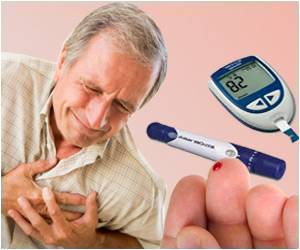Beta blockers used to treat hypertension and other heart-related conditions, affects the body’s stress response and impacts cancer progression.

There is growing evidence that stress hormones can stimulate cancer to grow and spread. Beta blockers, which are drugs commonly used to treat hypertension and other heart-related conditions, affect the body’s stress response and may therefore impact cancer progression.
To investigate the potential for beta blockers to prolong cancer patients’ survival, a team led by Dr Anil Sood, University of Texas, Anderson Cancer Center, retrospectively analyzed the 2000 to 2010 medical records of 1425 women who were treated at several different medical centers for ovarian cancer. The researchers noted that 193 of the women were taking beta blockers known as beta-1 adrenergic receptor (ADRB1) selective agents and 76 were receiving nonselective beta antagonists.
“We found that patients taking a broad, or nonselective, beta blocker were the ones who derived the most benefit compared with those who were not taking a beta blocker or those who were taking a beta-1–selective medication,” said Dr. Sood.
The median survival time was 47.8 months for patients receiving any beta blocker versus 42 months for non-users. Among those who took beta blockers, the median survival time was 94.9 months for those receiving nonselective beta blockers versus 38 months for those receiving ADRB1 selective agents. Patients with hypertension tended to have shorter survival times than patients without hypertension, but even among patients with hypertension, users of nonselective beta blockers had a longer median survival time than non-users (38.2 versus 90 months).
“Some of the prior studies have had conflicting data regarding the use of beta blockers and cancer patient outcomes. This may, in part, be since the type of beta blocker medication was not considered. To our knowledge, the current study is the first to examine the relationships with patient outcomes based on specific types of beta blockers,” said Dr. Sood.
Advertisement
“This study lays the groundwork for insightful investigation into repurposing cardiovascular medications to cancer therapeutics,” they said. They cautioned that beta blockers can cause significant side effects that could prevent their widespread use in patients with cancer, however. Therefore, stress reduction programs may represent a promising alternative.
Advertisement















